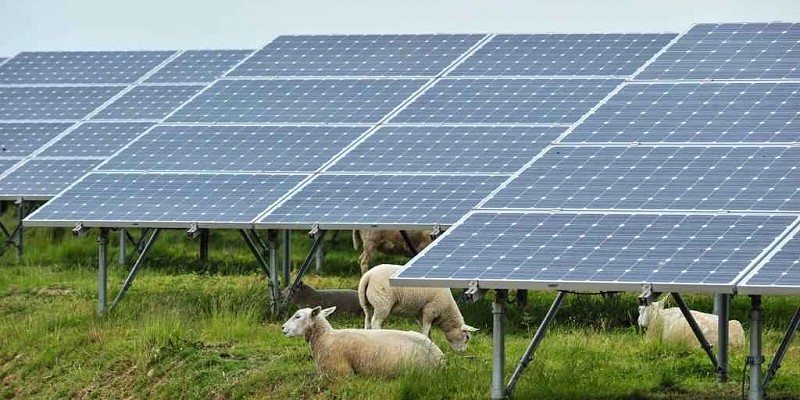Renewable Energy and Green Farming

Investing and installing renewable energy generation technologies can allow farmers the opportunity to diversify into a whole new line of business, securing the farms future whilst also offsetting emissions from traditional mainstream farming practices.
Currently around 40% of farmers and growers within the UK are harnessing renewable sources such as wind, sun, farm waste and energy crops to produce heat and electricity - did you know that farmers are producing enough renewable energy to power 10million UK homes!
Reducing a farms carbon footprint through improving efficiency can be a big task whilst retaining the high levels of productivity needed to remain profitable. The countryside of Northern Ireland & mainland UK will be essential for creating clean renewable energy and a huge contributor to progressing the agricultural industry to net zero emissions.
There are several technologies to which farmers are adapting into their every day farming practices, the most common are listed with some detail below.
Solar
- PV (Photovoltaic) is used to change and convert the suns energy into electrical energy. Many of the systems are fitted through ground mounting, or more commonly roof mounting. These are considered very cost effective as they require little maintenance throughout their lifetime.
Wind
- Wind Turbines are a common sight throughout the UK’s countryside, these machines harness the winds energy through capturing it with their blades to turn a generator that creates electricity. Many larger turbines are used solely for exporting to the national grid generating substantial amounts of electricity whereas the smaller turbines are used for generating power for the farm, reducing electricity bills and offsetting other energy use.
Water
- Hydroelectricity is generation created using the energy from flowing and running water to turbine blades that are connected to a generator. The infrastructure of this build can often be substantial and would be considered as a longterm investment, however for those farms with fast moving water volumes it may be an option.
Ground Source
- Ground Source heat pumps can be utilized by burying pipes underground, extracting heat from below the surface. This can be used to heat radiators within dwelling houses, and other heating systems that may be located on farm to reduce heating bills and reliance on fossil fuel.
Anaerobic Digestion
- Anaerobic Digestion (AD) is a controlled method of breaking down organic material without the presence of air. In an approximate period of 20 to 60 days depending on feedstock, heat, and quality a methane rich gas is produced known as biogas. The gas can be cleaned and scrubbed to be used within a Combined Heat and Power (CHP) engine, which creates electricity for export through the national grid and heat for use on farm. The leftover organic material can be used as a nutrient rich (odour free) fertilizer for farmland know as ‘Digestate’.
For more information on or for feasibility for future projects please contact the team on 028 9072 7760.
Sources



